Unavailable
Two Songs for Emerging Tenor Bass Choir is currently unavailable
We can no longer provide this arrangement through Sheet Music Stores. The listing stays online so you can learn about the piece and explore alternatives.
Try these next steps
- Discover similar sheet music curated for you below.
- Search for “Two Songs for Emerging Tenor Bass Choir” across our catalog.
About this arrangement
Choral Piano, tenor voice SKU: CF.BL1067 I. She walks in Beauty II. Travel. Composed by Noah Reese. Fold. Octavo. 12 pages. BriLee Music #BL1067. Published by BriLee Music (CF.BL1067). UPC: 680160911783. 6.875 x 10.5 inches. Key: C major. English. Edna St. Vincent Millay (1892-1950) and Lord Byron (1788-1824).Lord Byron was inspired to write the beautiful poem She Walks in Beauty upon meeting the wife of his first cousin in 1813. The poem describes her outward beauty as well as the inward qualities that Byron finds attractive. With limited ranges, beneficial for the emerging tenor bass choir, the piece is written in a way that will give young singers a chance to: Employ syllable and word stress by emphasizing important syllables/words in eighth note patterns Introduce easy harmonic sections that build the foundation of two-part singing The haunting poem Travel by Edna St. Vincent Millay is about the innate and unquestionable longing to travel away from home, represented by the speakers willingness to get on a train regardless of the destination. The piece is written with a repetitive piano part which mimics the sound of a trains wheels, while the mixed meter and use of parallel motion is meant to give the audience a sense of not being settled in the life being led. Travel moves back and forth between minor and major, affording emerging singers opportunities to experience accidentals and chromatic movement. Due to a slightly higher difficulty, the repeat at the end of the song and the second verse are optional.Lord Byron was inspired to write the beautiful poem She Walks in Beauty upon meeting the wife of his first cousin in 1813. The poem describes her outward beauty as well as the inward qualities that Byron finds attractive. With limited ranges, beneficial for the emerging tenor bass choir, the piece is written in a way that will give young singers a chance to: Employ syllable and word stress by emphasizing important syllables/words inA eighth note patterns Introduce easy harmonic sections that build the foundation of two-part singing The haunting poem TravelA by Edna St. Vincent Millay is about the innate and unquestionable longing to travel away from home, represented by the speakeras willingness to get on a train regardless of the destination. The piece is written with a repetitive piano part which mimics the sound of a trainas wheels, while the mixed meter and use of parallel motion is meant to give the audience a sense of not being settled in the life being led. Travel moves back and forth between minor and major, affording emerging singers opportunities to experience accidentals and chromatic movement. Due to a slightly higher difficulty, the repeat at the end of the song and the second verse are optional.Lord Byron was inspired to write the beautiful poem She Walks in Beauty upon meeting the wife of his first cousin in 1813. The poem describes her outward beauty as well as the inward qualities that Byron finds attractive. With limited ranges, beneficial for the emerging tenor bass choir, the piece is written in a way that will give young singers a chance to: Employ syllable and word stress by emphasizing important syllables/words in eighth note patterns Introduce easy harmonic sections that build the foundation of two-part singing The haunting poem Travel by Edna St. Vincent Millay is about the innate and unquestionable longing to travel away from home, represented by the speaker's willingness to get on a train regardless of the destination. The piece is written with a repetitive piano part which mimics the sound of a train's wheels, while the mixed meter and use of parallel motion is meant to give the audience a sense of not being settled in the life being led. Travel moves back and forth between minor and major, affording emerging singers opportunities to experience accidentals and chromatic movement. Due to a slightly higher difficulty, the repeat at the end of the song and the second verse are optional.Lord Byron was inspired to write the beautiful poem She Walks in Beauty upon meeting the wife of his first cousin in 1813. The poem describes her outward beauty as well as the inward qualities that Byron finds attractive. With limited ranges, beneficial for the emerging tenor bass choir, the piece is written in a way that will give young singers a chance to: Employ syllable and word stress by emphasizing important syllables/words in eighth note patterns Introduce easy harmonic sections that build the foundation of two-part singing The haunting poem Travel by Edna St. Vincent Millay is about the innate and unquestionable longing to travel away from home, represented by the speaker's willingness to get on a train regardless of the destination. The piece is written with a repetitive piano part which mimics the sound of a train's wheels, while the mixed meter and use of parallel motion is meant to give the audience a sense of not being settled in the life being led. Travel moves back and forth between minor and major, affording emerging singers opportunities to experience accidentals and chromatic movement. Due to a slightly higher difficulty, the repeat at the end of the song and the second verse are optional.Lord Byron was inspired to write the beautiful poem She Walks in Beauty upon meeting the wife of his first cousin in 1813. The poem describes her outward beauty as well as the inward qualities that Byron finds attractive.With limited ranges, beneficial for the emerging tenor bass choir, the piece is written in a way that will give young singers a chance to: Employ syllable and word stress by emphasizing important syllables/words in eighth note patterns Introduce easy harmonic sections that build the foundation of two-part singingThe haunting poem Travel by Edna St. Vincent Millay is about the innate and unquestionable longing to travel away from home, represented by the speaker’s willingness to get on a train regardless of the destination. The piece is written with a repetitive piano part which mimics the sound of a train’s wheels, while the mixed meter and use of parallel motion is meant to give the audience a sense of not being settled in the life being led.Travel moves back and forth between minor and major, affording emerging singers opportunities to experience accidentals and chromatic movement. Due to a slightly higher difficulty, the repeat at the end of the song and the second verse are optional.
Related sheet music

In the Bleak Midwinter
gustav holst, ruth elaine schram
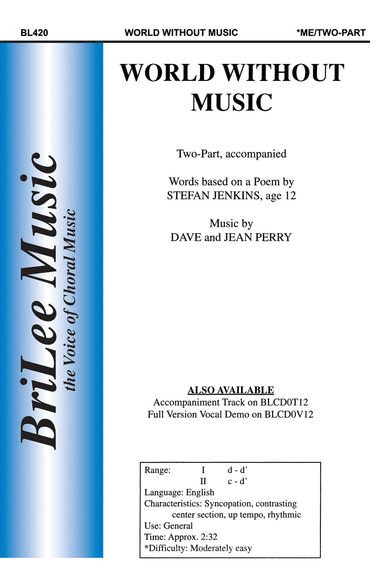
World Without Music
jean perry and david perry

Down By the Riverside
traditional
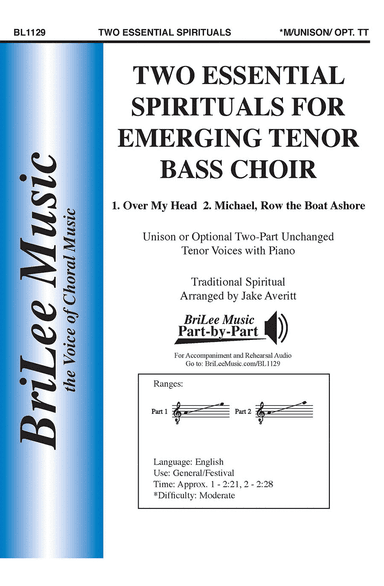
Two Essential Spirituals for Emerging Tenor Bass Choir
traditional spiritual
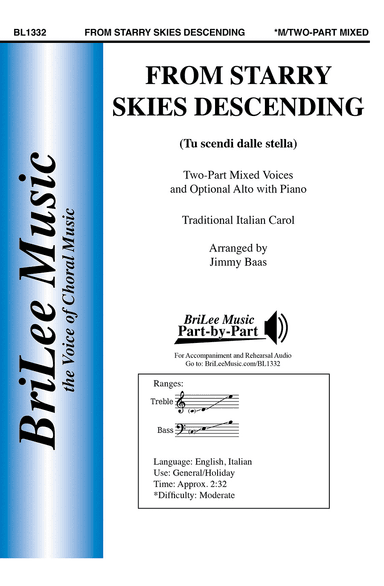
From Starry Skies Descending
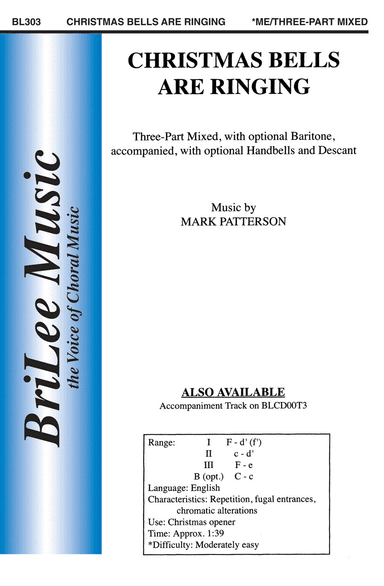
Christmas Bells Are Ringing
mark patterson

Carol of the Bells
steve kupferschmid

A Red, Red Rose
ruth elaine schram

Joshua's Battle
greg gilpin

Codfish Shanty
vijay singh
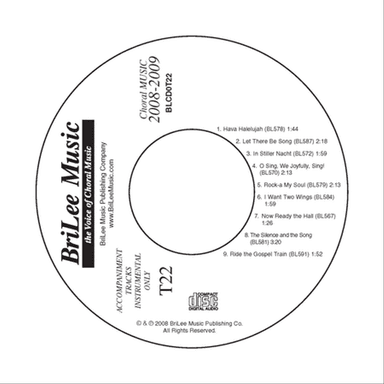
Accompaniment Track Cd No. 22
\n

Three Solfege Songs and Rounds
luigi cherubini, traditional, vicki tucker courtney